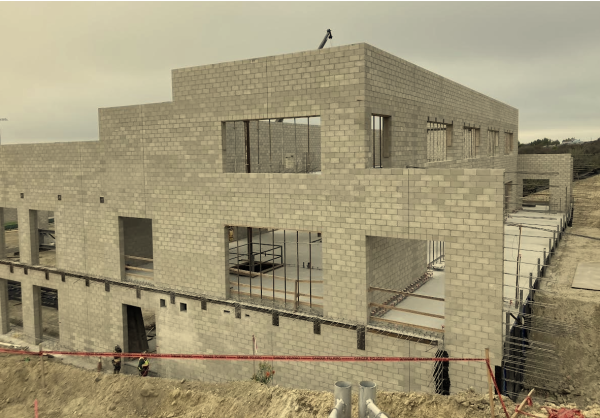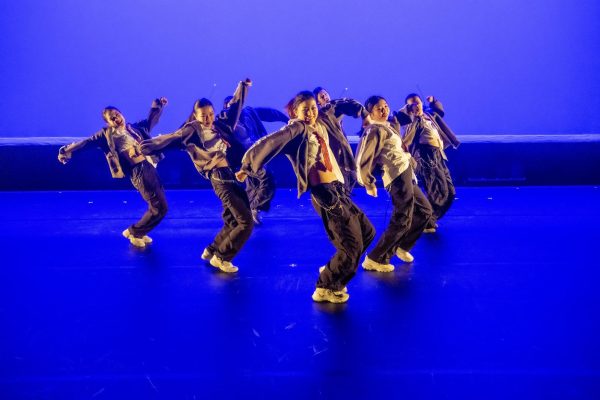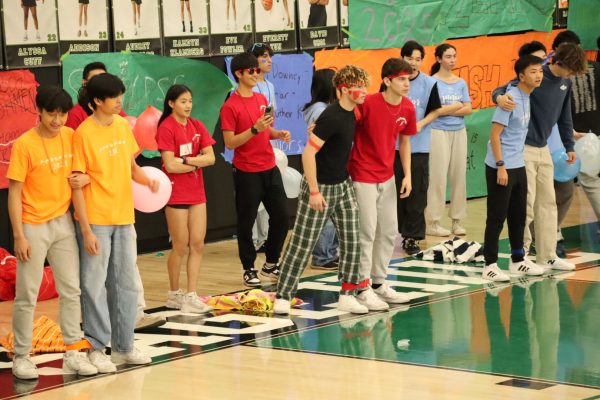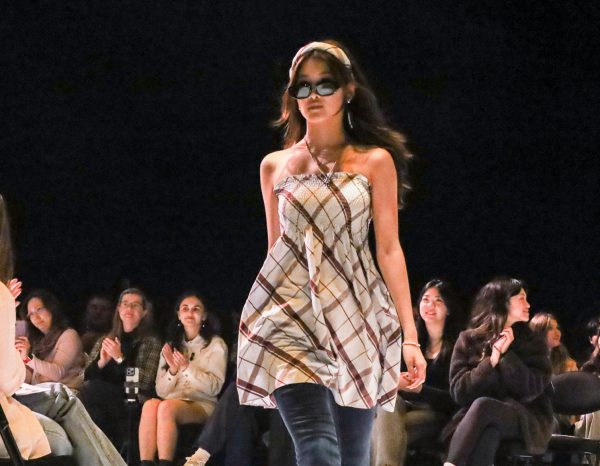A Passion for Science Puzzles
Claire Goul Named Semifinalist in the Intel Science Talent Search
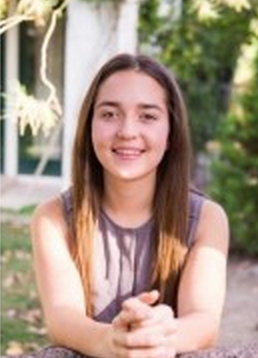
Senior Claire Goul was selected as a semifinalist for the Intel Science Talent Search, a renowned math and science competition, for her research on cancer cell metabolism. She maintains her trademark humility and drive as she prepares to publish her findings.
Claire Goul began researching cancer at 16 years old, in the summer after her sophomore year. She’s always been driven to think things out on her own. “If you do it that way, you’ll appreciate it more because you figured it out yourself,” she said.
After taking Tyler Zarubin’s Accelerated Biology class in tenth grade, she found her passion for biology. The class, notorious for demanding critical-thinking, helped Goul figure things out about the subject and herself. “[The class] at first may have been a little bit frustrating, but to me soon it made everything we did more exciting—maybe because the greater the challenge, the more exciting the discovery,” Goul mused.
So she flew to the Massachusetts Institute of Technology (MIT) for an internship with a professor of cancer research. As the plane touched down on Massachusetts soil, she was excited but unsure of what to expect.
“I was amazed by the scientific world and lifestyle of researchers,” Goul said.
During her eight weeks at the university, Goul became interested in mitochondria. She found and emailed a dozen professors asking to work in their labs back home in Orange County.
It’s the first advice Goul gives to high schoolers looking for research: to identify professors in the field you’re interested in and email them specific things you like or don’t like about their work. “Don’t be deterred if no one replies,” she laughed. Of her original 12 requests, only four professors answered — and none of them had room in their labs.
Eventually, she found Dr. Susanne Rafelski, an assistant professor at the University of California, Irvine (UCI). Right before she started her junior year, Goul began to work in Rafelski’s lab which specializes in mitochondrial network size, topology and function.
One and a half years laters, Goul looks back on her achievements with her trademark humility. When prodded, she reluctantly replies, “I wouldn’t say it was so much of a success as it was overcoming a ton of failures.”
It’s a modesty unwarranted. Goul was recently selected as one of 300 semifinalists, out of the original 1,800 high school seniors who applied for the prestigious competition. She earned a cash prize for herself and for Sage. Another panel of scientists is currently reevaluating applications, and the 40 finalists will be invited to Washington, D.C., to compete for top honors and meet President Barak Obama.
Goul’s reticence about her award takes a turn when the conversation moves toward biology — she talks faster, leans in, raises her voice emphatically. “I’m amazed by how much knowledge there is and how many questions there are that we don’t know the answers to,” Goul declared.
Her passion for biology is driven by her curiosity for the minute intricacies of life. “How does someone even do this? How is it even possible to see something light up in a cell? How do you extract a protein from a cell—and measure its weight?” Goul asked, a rapid fire of questions that left her interviewer slightly winded.
But it’s not just the lab work she enjoys. Goul most cherishes the conversations she’s had with teachers, close friends and mentors. “Some of the memorable moments just in science and outside of science have been talking to people. Because sometimes there’s this stereotype that in science, you’re in a lab and you don’t talk to people and you’re introverted. But it’s not like that, you have to talk to people, especially in other fields, if you want to make discoveries,” she explained.
Goul brought her passion for biology onto campus with Sage Science Ambassadors, a service learning project that creates science kits based on critical-thinking and common core standards for underprivileged schools. She and fellow founders, seniors Rebecca Fudge and Amir Soleimany, earned second place in a TEDx Orange Coast Teen Challenge in September, winning $500 to fund their project.
“The TEDx experience was inspiring — just to see what other teens locally were doing or had the ideas for in order to have a meaningful impact on the problems they saw around them,” said Goul.
She has witnessed plenty of surprise and admiration from researchers about her youth. “There’s this graduate student from Italy doing research at UCI and he told me, ‘I can’t believe all these high school students are in labs here’, ” she said. “Every time he sees me he says, ‘Wow that’s amazing,’ and just laughs and walks away.”
She counsels other students not to worry that they’re too inexperienced to get a research position in a lab. “People do think that you’re so young, they wonder how high school students can do [research]. But in biology it’s more about curiosity and creativity and mastering these terms. Once you do that, you have the same capacity to do things,” she said.
For now, Goul plans to continue her research after she graduates this spring, and hopefully publish her research. Though she is resigned to the prospect of not finding all the answers she may seek, her questions will not end in high school. “I’ve been thinking for awhile that I want to continue doing research, probably become a professor and have my own lab.”
She shrugs: “There’s always more to be done.”


